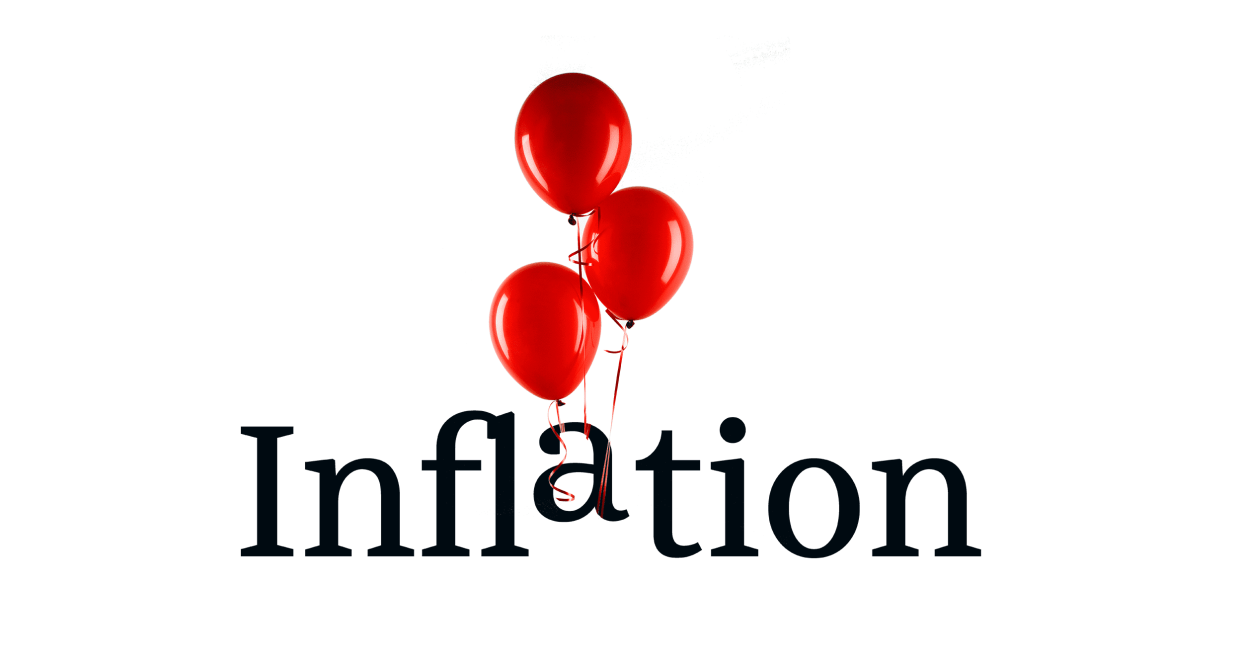Guest opinion: Inflation: The Good News and the Bad News

Historically there are two sides to inflation’s impact on families. The bad news is that everyone’s take-home-pay is worth less. The most recent calculation is that today’s inflation accelerated at a rate of 7.9% showing the highest rate of inflation in over 40 years. If that rate of inflation continues, your income could be worth about 8% less than it was last year.
Usually, the good news about inflation is that it tends to increase the amount of interest you receive on your savings account, savings bonds, etc. However, not so this year. The reason is that banks are flush with loanable funds due to the amount of money that was given to individuals and businesses as pandemic relief payments. So, basically there is no “good news” about the country’s inflation.
How did this happen? The first of the pandemic recovery payments (CARES Act) were issued in April 2020 totaling $292 billion. The second round in January 2021 under the American Rescue Plan totaled $164 billion. The third round, enacted on March 11, 2021, after the last presidential election, was $411 billion.
These payments of $867 billion represented a significant outlay of funds, but they were dwarfed by the total amount on all pandemic relief efforts. Additional payments grouped under the innocuous acronym, Catalogue of Federal Domestic Assistance (CFDA), were dispersed by various departments including the Department of Labor, Health and Human Services, Education, Agriculture, Transportation, Homeland Security, and Veterans Affairs. The Small Business Administration disbursed PPP funds to employers, of which only 23% to 43% went to their employees who would have lost their jobs. The cost was about $258,000 per job retained.

As of January 31, pandemic related obligations totaled $415 trillion. To give you an idea of how much $415 trillion is, it would take you about 31,710 years to count to just one trillion. Even with the pandemic on the wane, some in Congress recently pushed for a $15.6 billion addition to the omnibus spending bill. As Senator Evert Dirksen is purported to have said in 1964, “A billion here and a billion there, pretty soon you’re talking about real money.”
While this amount of debt is almost incomprehensible, the good news is that we need not worry about paying it off all at once or ever paying it off. That is because, as members of Congress are fond of saying, “We owe it to ourselves.” About $6.5 trillion of the U.S. debt is “intragovernmental” amounting to government agencies such as the Social Security Trust Fund and Treasury Department loaning it to other agencies such as Defense and Labor. The rest of the public debt amounts to about $22 trillion. Of that amount 66.% is held by U.S. citizens and institutions such as American banks, businesses, and institutions who receive interest for the privilege of loaning money to the U.S. Treasury. The remainder of the debt, (34%) is owed to foreign entities that hold U.S. bonds as attractive investments that pay interest mostly above what other quality investments would earn. Because there are few if any investment opportunities more secure that U.S. debt, we need not worry much about them cashing in their bonds, at least not right now.
So, why do we need to worry about increasing the national debt if we mostly owe it to ourselves? It is because of the “redistributive effect” that occurs when those who own the debt receive interest payments taken from taxes paid by U.S. citizens. Recipients of these interest payments are usually in higher income brackets. The result is that every year money is transferred from lower income to higher income citizens.
As the Federal government pays borrowers to finance greater expenses so to cover interest payments on the debt, especially at a time when there are shortages of labor, artificially constrained energy, and supply problems, it is little wonder why inflation is the result. Too much money chasing too few goods is the classic definition of inflation. No amount of rhetoric from the Fed, the White House or Congress is going to change that. The only thing that will is fiscal responsibility on the part of Americans and their elected officials.
Michael A. MacDowell is President Emeritus of Misericordia University. He is a member of the Board of the Calvin K. Kazanjian Foundation. He lives in Estero, FL.
This article originally appeared on Fort Myers News-Press: banks flush with loanable funds due to pandemic relief payments

